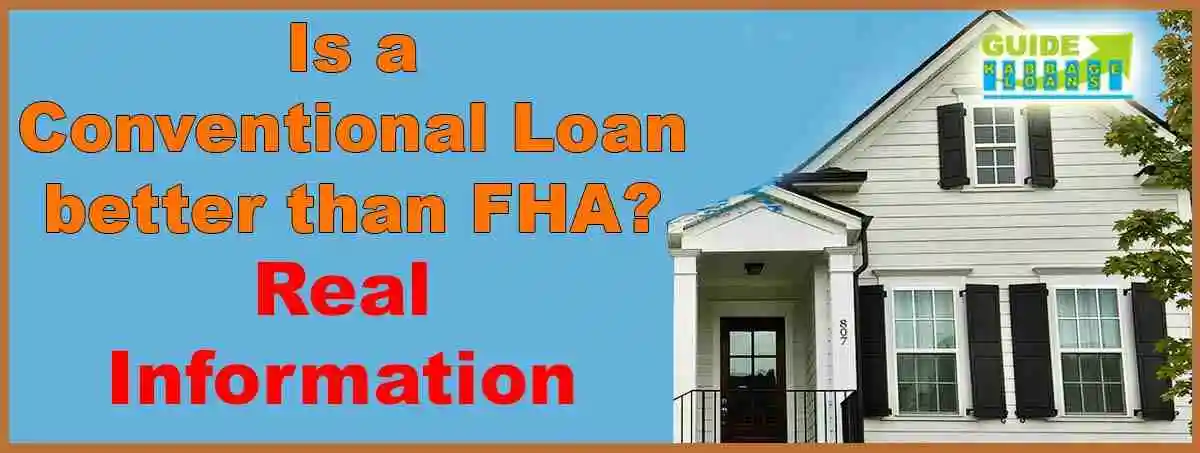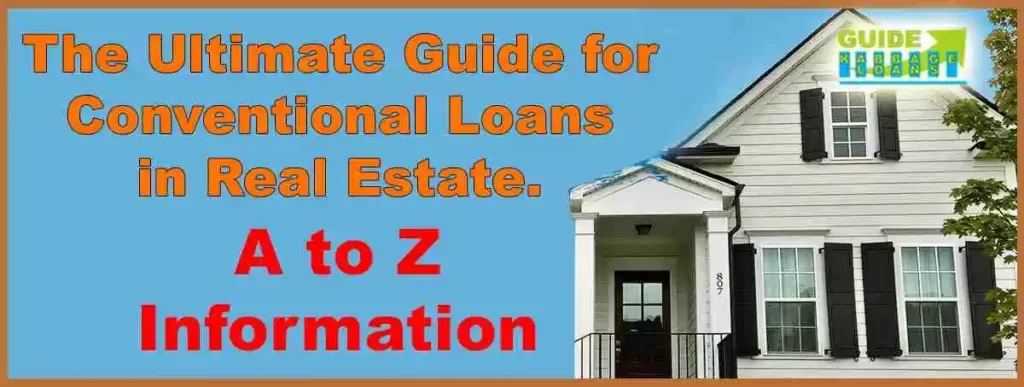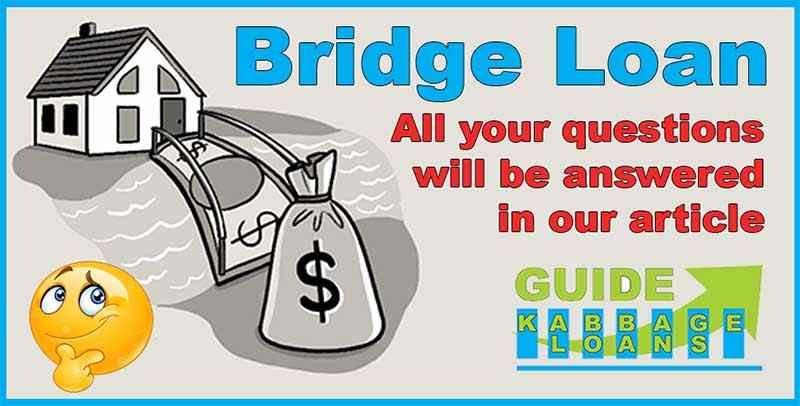Last updated on June 20th, 2024 at 07:34 pm
As you all know VA loans and FHA loans are such loans that are guaranteed by the government. However, the government does not guarantee a conventional loan. This is to be given to any loan lender at your own risk. These institutions check many factors before giving the loan, and after that, they give the loan. Today, in this article, we will discuss in detail conventional loans in Real Estate and will explore their requirements, interest rates, loan limits, and all the questions related to them.
What are conventional loans in Real Estate?
A conventional loan is a type of mortgage that is not insured or guaranteed by the federal government. Instead, it is offered by private lenders, such as banks, credit unions, and mortgage companies. Conventional loans come in two main types: conforming and non-conforming.
Conforming loans meet the guidelines set by Fannie Mae and Freddie Mac, including loan limits and credit requirements, while non-conforming loans, also known as jumbo loans, exceed these limits.

Is a conventional loan better than an FHA?
Yes, conventional loans are generally better than FHA loans, but in some aspects, FHA loans can be better than conventional loans. Below, we have provided a detailed table to help you understand which loan is best for you.
| Feature | Conventional Loan | FHA Loan |
|---|---|---|
| Credit Score Requirements | Minimum 620 (740+ for best rates) | Minimum 580 for 3.5% down payment; 500 for 10% down payment |
| Down Payment | As low as 3% (20% to avoid PMI) | As low as 3.5% |
| Mortgage Insurance | Private Mortgage Insurance (PMI) is required if < 20% down | Mortgage Insurance Premium (MIP) required for the life of the loan |
| PMI Cancellation | Can be cancelled once 20% equity is reached | Cannot be cancelled; must refinance to a conventional loan |
| Upfront Mortgage Insurance | None | Upfront MIP of 1.75% of the loan amount |
| Loan Limits | Higher loan limits (conforming to Fannie Mae and Freddie Mac) | Lower loan limits set by FHA |
| Interest Rates | Generally lower for high credit scores | Typically higher due to lower credit score accommodation |
| Debt-to-Income Ratio (DTI) | Usually requires DTI of 45% or less | Can be more lenient, up to 50% in some cases |
| Property Types | More flexibility in property types | Strict property standards; must meet FHA guidelines |
| Eligibility | Higher credit and income requirements | More accessible for first-time buyers and those with lower credit |
| Appraisal Requirements | Standard appraisal | Stricter appraisal to ensure the property meets safety standards |
| Down Payment Assistance | Less likely to offer down payment assistance | More likely to offer down payment assistance programs |
| Refinancing Options | Variety of refinancing options | Streamlined refinancing options available |
| Processing Time | Typically quicker processing time | Can be slower due to strict appraisal and inspection requirements |
| Closing Costs | Can be higher, but seller concessions are possible | May have lower closing costs |
| Property Condition | More flexibility, less strict inspections | Must meet minimum property standards for safety and habitability |
Is a conventional loan a government loan?
No, a conventional loan is not a government loan. A conventional loan is a loan that can be given by private banks, credit unions, and any private institution, but no government bank or government institution gives this loan and that is why it is called a conventional loan.
Apart from this, V A loans and FHA loans are such loans in the United States of America that are government loans and their interest rate is also low. The interest rate of a conventional loan is high and whichever lender gives this loan, he gives it at his own risk. Although you can buy a home with a VA loan, conventional loans are more easily available than VA loans
How can I apply for conventional loans in real estate?
To apply for conventional loans in real estate, you need to find a private lender that offers conventional loans. You can search online, ask for referrals from friends or family, or work with a mortgage broker who can help you find a lender. Once you have been identified by a lender, you will need to complete a loan application and provide documentation to verify your income, assets, employment history, and creditworthiness.
Conventional loan down payment percentage.
In the United States, the minimum down payment for a conventional loan can be as low as 3% of the home’s purchase price. However, if you put down less than 20%, you will be required to pay for private mortgage insurance (PMI), which increases your monthly payments. PMI can be cancelled once you reach 20% equity in your home.1
Requirements for Qualifying for a Conventional Loan in Real Estate.
To qualify for a conventional loan in real estate, several key requirements need to be met. Here is an overview of the main criteria along with sources for more detailed information:
Key Requirements for Qualifying for a Conventional Loan:
- Credit Score:
- The minimum credit score of 620, but a score of 740 or higher is ideal for the best interest rates.
- Down Payment:
- Minimum down payment of 3% for first-time homebuyers or those with moderate incomes. A 20% down payment is preferred to avoid Private Mortgage Insurance.
- Debt-to-Income Ratio (DTI):
- Ideally, a DTI ratio of 45% or less, although some lenders may allow up to 50% depending on other factors.
- Income and Employment Verification:
- Proof of stable income and employment history, usually with documentation such as pay stubs, W-2 forms, and tax returns.
- Loan Limits:
- Must conform to the loan limits set by Fannie Mae and Freddie Mac, which vary by region. For 2024, the standard conforming loan limit is $726,200, with higher limits in high-cost areas.
- Property Requirements:
- The property must meet certain standards and be appraised to determine its value. The condition of the property should be acceptable to the lender. Real estate taxes must be paid.
- Mortgage Insurance:
- Required if the down payment is less than 20%. This can be cancelled once the homeowner reaches 20% equity in the property.
These sources provide comprehensive details on the requirements and can help you better understand the qualifications for obtaining a conventional loan in real estate.1
Conventional loan interest rates today.
| Sr No | Period | Interest rate |
| 1 | 10-year | 4.99 % |
| 2 | 20 year | 5.35 % |
| 3 | 30 year | 5.85 % |
It is difficult to get any kind of interest subsidy on conventional loans
Conventional loan calculator with PMI.
A conventional loan calculator with PMI is a tool that helps you calculate your monthly mortgage payments, including private mortgage insurance (PMI) if required. PMI is typically required if you put down less than 20% on the home purchase price. You can find a conventional loan calculator with PMI online, or your lender may offer one.
What is the conventional loan limit for 2024?
The conventional loan limit for 2024 is $647,200 for a single-family home. This limit may vary depending on the location and type of property.
Minimum credit score for conventional loan 2024.
The minimum credit score for a conventional loan in 2024 is typically 620 or higher. However, some lenders may require a higher credit score, depending on the borrower’s income, employment history, and other factors. Some lenders may give you a loan even if you have a bad credit score.
Does a conventional loan require an appraisal?
Yes, a conventional loan typically requires an appraisal to determine the value of the property. The appraisal helps the lender ensure that the property is worth the amount being done on the loan and protects the borrower.
The appraisal is usually conducted by a certified appraiser and takes into account the condition of the property, its location, and other relevant factors.
Does a conventional loan require septic inspection?
In some cases, a conventional loan may require a septic inspection. This is especially true if the property has a septic system instead of a public sewer system. The purpose of the septic inspection is to ensure that the septic system is functioning correctly and to identify any potential issues that may need to be addressed.

Does a conventional loan require PMI?
Private mortgage insurance (PMI) is typically required for conventional loans if the borrower puts down less than 20% of the purchase price. PMI protects the lender in case the borrower defaults on the loan. The cost of PMI varies depending on the size of the down payment, the loan amount, and the borrower’s credit score.
Does a conventional loan have to be a primary residence?
No, a conventional loan does not have to be used for a primary residence. Conventional loans can also be used to purchase second homes or investment properties. However, the lending criteria may be more stringent for these types of properties.
Does a conventional loan require a heat source?
Yes, a conventional loan typically requires that the property has a heat source. This is because a heat source is necessary for the property to be habitable and for the borrower to live comfortably. The type of heat source required may vary depending on the location and climate.
Conclusion.
Conventional loans offer a flexible and widely accessible option for financing real estate, particularly for those with strong credit and sufficient income. Unlike government-backed loans, conventional loans are provided by private lenders and come with their own set of requirements and benefits.
Faq’s
How does a conventional loan in real estate differ from other types of financing?
Conventional loans differ from other types of financing, such as FHA loans, in that they are not insured or guaranteed by the government. This means that the lender takes on more risk, but it also means that the borrower has more flexibility in terms of property type and loan terms.
What are the interest rates for conventional loans in real estate?
Interest rates for conventional loans in real estate can vary depending on various factors, such as the borrower's credit score, loan term, and down payment amount. However, they are typically lower than the interest rates for other types of financing, such as FHA loans.
The approx interest rates for conventional loans in real estate is between 5% to 10%.
Can I get a conventional loan in real estate with bad credit?
It may be more difficult to get a conventional loan in real estate with bad credit, but it is not impossible. You may need to work with a lender who specializes in working with borrowers with bad credit, and you may need to pay a higher interest rate or provide a larger down payment.
How much can I borrow with a conventional loan in real estate?
The amount you can borrow with a conventional loan in real estate depends on a variety of factors, such as your creditworthiness, income, and the value of the property you are purchasing.
Most lenders will allow you to borrow up to 80% of the property's value.
What are the common mistakes to avoid when applying for a conventional loan in real estate?
Some common mistakes to avoid when applying for a conventional loan in real estate are as follows,
- Not checking your credit score before applying,
- Not shopping around for the best interest rate,
- Not providing accurate or complete information on your application.
Thanks for your visit.
(Power of Conventional Loans in Real Estate.)
Disclaimer: The information provided in this article is for general informational purposes only and should not be construed as financial or legal advice. We recommend consulting with a qualified financial advisor or mortgage specialist to discuss your specific circumstances before making any financial decisions.
- Reference: The Mortgage Reports [↩] [↩]





